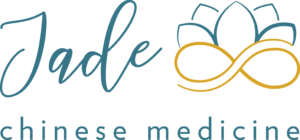Complex conditions
It’s not unusual for someone who has been unwell for a significant period of time to have multiple issues of concern. Some may be more significant on the priority list than others, but often because the entire body is under so much stress, numerous aspects of health with suffer and struggle to regain equilibrium.
Its quite common to see migraines and chronic muscular pain and depression or anxiety (or both) and digestive sensitivity and period pain (in a woman) appear together, at the same time.
In Chinese Medicine, we look for an overall picture of health – or lack of it – and its why so often when we treat one apparently singular issue, other presenting complaints also respond and improve. Many aspects which appear unrelated from a Western Medical framework make complete sense from ours. Eastern Medicine regards any pathology as part of an overall pattern of disharmony and imbalance. This may, and often does, mean that we observe and treat physical, emotional, and energetic aspects attributed to a disorder together, at the same time. One aspect might be treated but another will also improve. This will often be reflected by symptoms (and shifts) across the mind and body simultaneously. This makes Chinese medicine ideal for chronic, complex and mental health conditions, which tend to cluster together.
One of the things Eastern Medicine performs best at is, in simple terms, to ‘fill the gaps’ of the conditions Western Medicine treats poorly. One of the most fundamental differences between Eastern and Western medical foundations is the capacity to view you, as a person, as a complete and holistic picture of health. A Chinese Medicine Practitioner is trained to see the pattern of disharmony reflecting in your body and mind and treat both accordingly, be that manifesting as one illness or many. A diagnosis of any condition is of little help to you if you are then told there is no pharmaceutical or surgical option that is appropriate. Sometimes the associated risk or side effects may not be worth the treatment option available.
For an Eastern Medicine practitioner, this is not only logical, but completely predictable. A disorder in one area, by definition, must go somewhere else eventually if is not resolved. Western Medicine is just starting to acknowledge this as a ‘symptom cluster’. In Oriental Medicine, where we’ve been looking at health as a holistic interaction of numerous body systems for thousands of years, we refer to this a pattern. And as a practitioner, its what I’ve been extensively trained to diagnose and treat to get the best possible outcome, for you as an individual.
As a holistic medical treatment, an Acupuncturist and Chinese Medicine can:
- Treat both the ‘root’ (cause) and the ‘branch’ (symptoms) of your condition.
- Assist you to make informed decisions about your health and treatment option
- Provide drug-free pain relief
- Effectively treat a wide range of acute and chronic ailments
- Treat the underlying cause of disease and illness as well as the symptoms
- Provide a holistic approach to the treatment of disease and illness, linking body, mind and emotions
- Assist in the prevention against disease and illness as well as the maintenance of general well-being
- Work alongside other health professionals or as a main modality to treat symptoms of your condition and reduce pharmaceutical drug side effects
- Treat you as a whole person, not solely defined by your disease
I often find that the thing Western Medicine has found so troubling in Eastern Medicine – that we work on multiple issues of health and health disturbance at the same time, that benefits are not singular and isolated – is the very thing that most people would consider our greatest asset. I work on pain, insomnia, Mental health, digestive disturbance, women’s health, and pharmaceutical side effects, all in a course or regular treatment. Its amazingly effective for you, as a patient. Multiple benefits across numerous health issues is not a disadvantage!

